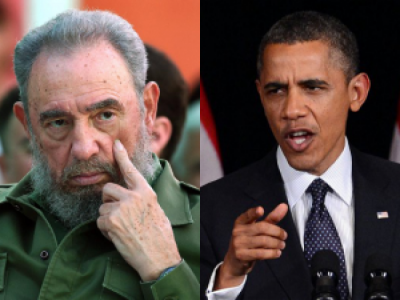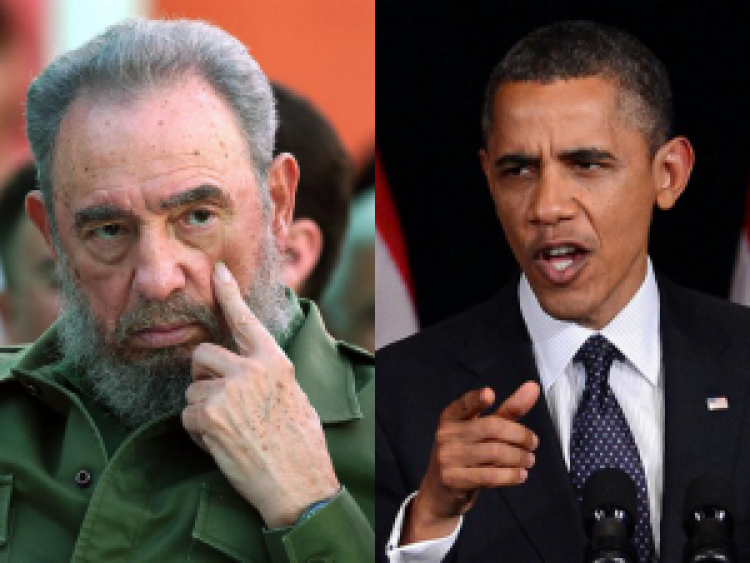Fidel and Obama in Cuba: Now THAT Is Historic!

Much has been written and said about Obama’s trip to Cuba in the context of the developing Cuba–US relations. One of the themes deals with the historic nature of the trip. Some commentators say that it was historic. Others are somewhat less attracted to this analysis, indicating that the new Obama policy is merely a change in tactics in order to achieve its strategic goal of destroying the Cuban Revolution. Thus, this approach argues, the visit is not worthy of being described as historic. Perhaps both arguments have their merits. Yet, there is another angle that suggests that, yes, it was indeed historic.
March 20–22, 2016 was historic. For the first time since the 1959 Revolution led by Fidel Castro, a President of the US was in Cuba at the same time as Fidel. Why is this historic?
Fidel is the Historic leader of the Cuban Revolution. He represents the staunch defense of Cuba’s sovereignty and the building of a just society through socialism. But he is much more than that. To Cubans and to a wide section of peoples from Latin America and the Caribbean, he is the symbol of stalwart, consistent and courageous opposition to US imperialism, wars of aggression and the ever-present danger of nuclear war. Alongside this, Fidel Castro is the embodiment of the search for social justice, equality and safeguarding the world’s environment.
Many countries and peoples of Asia, Africa and Eurasia also feel this same reverence for the Cuban leader. Even in the West, including the US itself, this respect is found among many peoples and organizations. Fidel is considered by many to be the most important political figure of the 20th and 21st centuries. Now in his 90th year, he still contributes to his goals, which have captivated him since the 1940s.
He was, of course, in Cuba on March 20–22 while Obama was visiting. What does Obama represent? Even though the tendency these days is not to see Obama in a negative light, one has to step back and tell it like it is. He represents US imperialism.
US imperialism finds its roots in the birth of the Thirteen Colonies in the 17th century as a self-proclaimed evangelical beacon on the hill for all people in the world to look up to. This biblical concept is fully subscribed to by Obama. Its very origins are the basis of its expansionism, genocide against the native peoples, slavery, racism, neocolonialism and then imperialism.
Since the last days of World War II and of Hiroshima and Nagasaki, US imperialism is responsible for wars of aggression, torture and the death and destruction of millions of people around the globe. It is also notorious for racist violence, the incarceration of African-Americans and discrimination against Latinos. Obama is the willing symbol of this heritage today, even though it is carefully concealed by him, much of the US ruling oligarchy and their media.
Thus, on March 20–22, Fidel and Obama – two living symbols representing two very opposite world views and values that affect the very future of humanity – were for the first time finding themselves standing on the famous island known to many, friends and foes alike, as “Fidel’s Cuba.” This is indeed historic.
Arnold August is a Canadian journalist and lecturer, is the author of Democracy in Cuba and the 1997–98 Elections and, more recently, Cuba and Its Neighbours: Democracy in Motion. Cuba’s neighbours under consideration are, on the one hand, the US and, on the other hand, Venezuela, Bolivia and Ecuador. Arnold can be followed on Twitter @Arnold_August.


